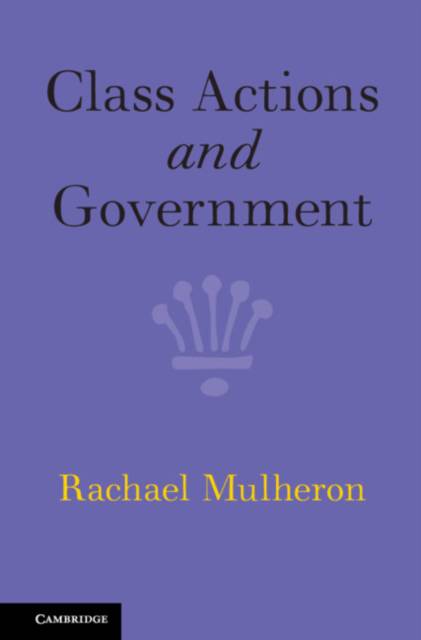
- Afhalen na 1 uur in een winkel met voorraad
- Gratis thuislevering in België vanaf € 30
- Ruim aanbod met 7 miljoen producten
- Afhalen na 1 uur in een winkel met voorraad
- Gratis thuislevering in België vanaf € 30
- Ruim aanbod met 7 miljoen producten
Zoeken
Omschrijving
The relationship between class actions and government makes for a nuanced and fascinating study. Government sets the scene by implementing and designing the regime, by choosing whether to act as a seed-funder for the regime, and by deciding to what extent it should regulate the regime against worldwide classes being litigated on its doorstep. It can then become a key player in the litigation itself. Government may be a representative claimant bringing the action, or a class member, or a potential financial beneficiary. Most commonly of all, it may be a defendant, being sued under the very regime which it enacted into law. With numerous opt-out class action regimes around the common law world in place, and others on the horizon, the book takes a comparative perspective throughout, and concludes with a series of recommendations, drawn from that comparative analysis of government's intricate interplay with class actions.
Specificaties
Betrokkenen
- Auteur(s):
- Uitgeverij:
Inhoud
- Aantal bladzijden:
- 464
- Taal:
- Engels
Eigenschappen
- Productcode (EAN):
- 9781107043978
- Verschijningsdatum:
- 21/05/2020
- Uitvoering:
- Hardcover
- Formaat:
- Genaaid
- Afmetingen:
- 165 mm x 231 mm
- Gewicht:
- 771 g

Alleen bij Standaard Boekhandel
+ 461 punten op je klantenkaart van Standaard Boekhandel
Beoordelingen
We publiceren alleen reviews die voldoen aan de voorwaarden voor reviews. Bekijk onze voorwaarden voor reviews.











